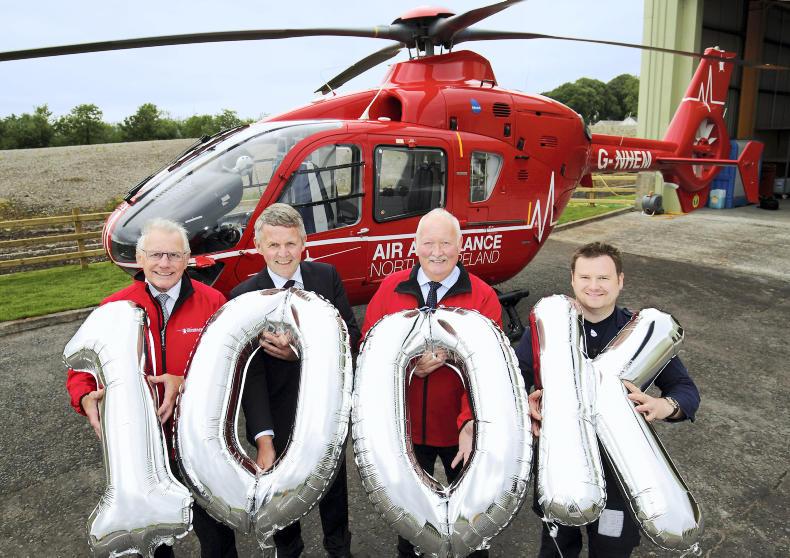The Ulster Farmers’ Union is gearing up to mark its centenary year in 2018 and has announced that Air Ambulance NI will be the nominated charity for the year.
The aim is to raise £100,000, which will be a significant contribution towards the £2m per year required to operate the service, currently funded through charitable donations.
“In isolated rural areas, it can be difficult for medical services to reach, treat and transport people. The air ambulance will help tackle that and so will save lives. It’s a service we hope we will never need but if we do we would be forever grateful it is there,” said UFU president Barclay Bell.
NI beef event to return in 2018
Nearly six years since its last big event in NI, the National Beef Association (NBA) has announced that it intends holding a NI Beef event at Dungannon Mart on Monday 26 February 2018.
The day will include trade stands, breed society displays, outdoor and indoor demonstrations and topical seminars. It will also incorporate the NI Commercial Cattle Club’s Calf Show and Sale, as well as farm tours on Tuesday 27 February.
Helmets required on quad bikes
Farmers with four-wheel quads and all-terrain bikes are now required by law to wear a helmet when travelling on the public road network. The change comes after the Motor Cycles (Protective Headgear) Regulations (NI) 1999, which mandates the wearing of helmets for those who ride motorcycles, has been extended to those who ride quads.
Those found in breach of the law can be fined up to £500.
Figures provided by the PSNI show that between 2006 and 2016, five people were killed and 71 injured while riding a quad on a public road.
Consumers pay more for British meat
Research led by Professor Iain Fraser from the University of Kent has shown that consumers are now more conscious of the origin of fresh and processed meat they buy.
The change has come about due to the 2013 horsemeat scandal, meaning that consumers now place a higher value on meat products with a UK origin label.
According to the research, shoppers are willing to pay around £2/kg more for meat identified as UK origin, compared with that with no country-of-origin information.
The study also showed that beef products, in particular, have seen the biggest rise in consumers valuing country of origin labels.
As a result, the researchers found that food retailers have voluntarily increased the amount of origin labelling they provide on products to keep consumers informed. Given that retailers are legally obliged to label fresh beef, this additional information is presumably on processed beef products, which fall outside compulsory beef labelling rules.





SHARING OPTIONS